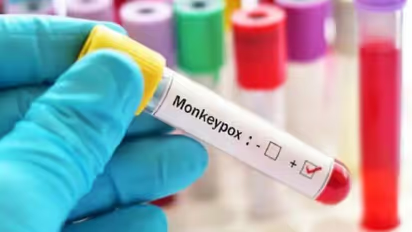WHO convenes emergency meeting: Mpox outbreak nearing global emergency status? What we know so far

Synopsis
The decision to convene the emergency meeting follows a significant increase in Mpox cases in the Democratic Republic of Congo and nine other African nations, including Kenya and Burundi. The outbreak in Kenya was identified on July 29 in a truck driver who had travelled to Uganda, Rwanda, and Tanzania while infected.
Following a surge in Mpox (monkeypox) cases in Africa, the World Health Organization (WHO) has called an emergency meeting to assess whether the outbreak should be classified as a global emergency. WHO Chief Tedros Adhanom Ghebreyesus said that the meeting was prompted by the spread of Mpox beyond the Democratic Republic of Congo.
"Decided to convene an emergency committee to advise on whether the Mpox outbreak in African countries represents a public health emergency of international concern," Ghebreyesus said.
Lung Disease: Here are some warning signs one needs to check out
The decision to convene the emergency meeting follows a significant increase in Mpox cases in the Democratic Republic of Congo and nine other African nations, including Kenya and Burundi. The outbreak in Kenya was identified on July 29 in a truck driver who had travelled to Uganda, Rwanda, and Tanzania while infected.
Last week, the Africa Centers for Disease Control and Prevention (Africa CDC) reported that Mpox has been detected in 10 African countries this year. Congo has been accounted for over 96 percent of all cases and deaths.
With the outbreak on the rise, WHO's emergency meeting aims to determine if the viral illness needs to be elevated to the status of a "global emergency."
What is monkeypox?
Do you have an unhealthy gut? Here are 7 common signs and tips to address them
Monkeypox is a viral illness similar to smallpox. The virus is transmitted to humans through close contact with an infected person or animal, or through materials contaminated with the virus. This year, Mpox cases have increased by 160 percent, affecting 10 African countries.
The current outbreak in Africa has disproportionately impacted children due to its high mortality rate. According to the Africa CDC, nearly 70 percent of cases in Congo are in children younger than 15, who also accounted for 85 percent of deaths.